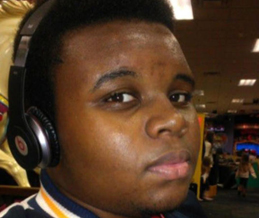Do “all lives matter,” or do “black lives matter?”
While some of the most vocal supporters of the former undoubtedly seek to quell conversation on the latter, the truth is, all lives matter. A serious conversation in this context – one in which facts are not ignored or distorted – would serve both the country and the African American community well.
Last week, the Washington Post reported in a front page a story that 24 unarmed African American teenagers have been killed by white police in the past year. The takeaway was clear: these should never have happened. Yet, among these, we have the Michael Brown event in Ferguson, Missouri, an incident that looks far different based on investigative facts than the surrounding media narrative. There is scant evidence that this tragedy meets the test of a “gentle giant” being gunned down in the street for no reason.
Police that engage in dangerous, reckless, or outright illegal behavior that causes harm to others deserve harsh consequences. But unlike what the Post would have you believe, that does not mean that every time an African American suffers death at the hands of the police that it is “another instance of overly aggressive and improper use of authority….”
The same Washington Post that focused on the deaths of 24 over an entire year also reported that in July alone there were 45 murders in Baltimore. Overwhelmingly, this is a matter of black on black crime. As of August 2, there were 84 people slain in Washington, D.C. Murder is up by 32 percent in Atlanta, by 17 percent in Chicago, and 13 percent in New York. These crimes are again, unfortunately the result of inner-city violence, largely ignored by a mainstream media far more concerned with perpetuating the narrative of police slayings.
The day after a white policeman was killed by an African American during a “routine traffic stop,” Washington Post columnist Lonnae Neal documented her own, similar experience. She said that in the past, being pulled over had annoyed her. Now, she is “afraid,” largely due to her unique experience.
Ms. Neal was pulled over for a headlight that was out. Driving the car was her daughter, who did not have her license with her. “He ran her name, said it wasn’t in their records. I said it had to be. He shined his flashlight into the car. It hurt my eyes.”
While the policeman went back to his car to try and establish the facts, Ms. Neal got out of the car while ordering her son to go back to the house and get the license. Shockingly, the cop told her to get back in the car. Then he said he was going to count to five. Ms. Neal claims to have frozen and at the count of four suddenly regained her form to both go the car and yell, “I’m a reporter for the Washington Post.” In the next little bit of time, the police officer apologized for yelling, as did Ms. Neal. Later, the cop asked, “I’m not going to read about this, am I?” She responded, “no worries.” Ms. Neal received no citations.
Of course, it all was there in the Post, Ms. Neal portrayed as a victim. Her conclusion is: “Every time someone is left humiliated or frightened by one of these stops (let alone bloody or dead), some of what binds is lost.” How about a little humility and gratitude for a cop who let her off after an attempt to influence the outcome by invoking her position as a reporter?
Why all of this detail on an isolated incident? Well, on August 9, an African American woman wielding a knife was shot by a policemen in Washington, D.C. The cops said it was after she had swung the knife at the cop. One observer, Terrence Bogan said: “I didn’t see her swing the knife. He shouldn’t have shot. Not at all.” Fortunately, for the police in this case, there is actual video that shows the woman most definitely swinging the knife. So, what is the verdict here? “It seems the officer was restrained and there was only one shot. It appears the officer was justified,” said Philip Stinson, associate professor of criminal justice at Bowling Green State University.
We simply cannot ask the police to risk their lives day after day, going into violent, life threatening situations and parsing out the number of bullets they can fire in self defense. No society can endure that sort of approach.
Most important, it is time to reaffirm that it is all lives that matter. When all of us, black and white, have that mindset, you have to believe the amount of senseless, growing, and ongoing mayhem that is so ever present in too many communities with large percentages of African Americans will decline.
Police wrongdoing must not stand, however, given the numbers, focusing on African Americans killed by the police—no matter the fact base—versus on the complete breakdown of order and normal understandings is a mistake. When we truly care about one another, when African American leaders and the mainstream media spend an amount of time on these tragedies proportionate to their numbers, then we can begin to have some hope.

